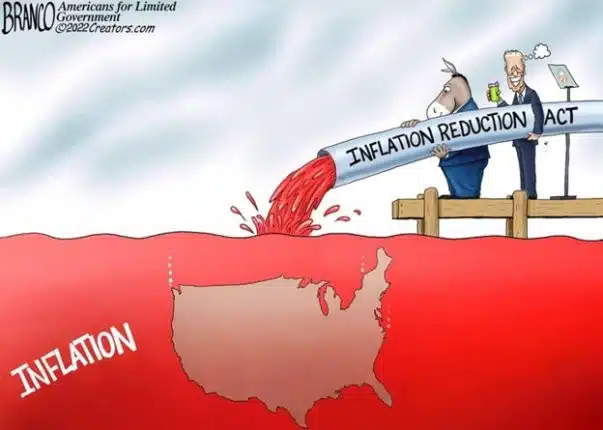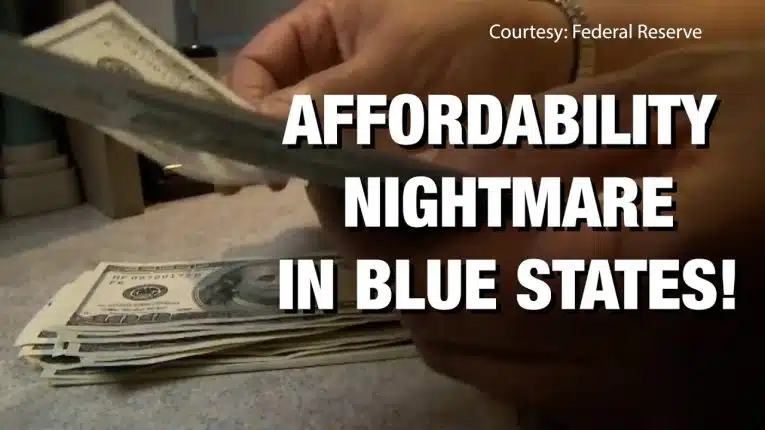
New data shows Black voters are moving to the right at the margins – and the economy under President Biden is a big contributor.
The shift is most concentrated with Black men, and particularly younger, economically motivated men who are disappointed with the Democrat Party’s mismanagement of economic issues. These voters have not only moved to the right in recent elections, but they show fairly high support for President Trump – and the policies he pushed.
YouGov polling shows Trump’s approval rating has nearly doubled with African Americans since he left office, going from 19% in early 2021 to 37% today. This represents an 18 percentage-point increase in Trump’s favorability over the past two years. The same survey shows 38% of Blacks want Trump to run again.
This comes on the heels of recent CNN and Quinnipiac polls showing Trump’s lead over prospective GOP challenger Ron DeSantis widens with lower-income and non-white voters. Trump is ahead of DeSantis by approximately 29 percentage points (55% to 26%) with voters of color but ahead by just one percentage point – and well within the margin of error – with white GOP primary voters.
The reason African Americans are increasingly supportive of Trump two years after he left office despite a media firestorm to dissuade them appears to be a simple one – the economy.
Black Americans are struggling significantly harder today economically than they were under the Trump Administration. YouGov data shows Black Americans are “very” concerned about the economy by an average of ten percentage points more than whites and Hispanics – 78% compared to 69% and 68% respectively.
The Black and Hispanic unemployment rates hit the lowest numbers on record in 2019 under then-President Trump, a factor that contributed to Trump’s gains in 2020.
Trump won 12% of Black Americans nationwide in 2020, up from 8% in 2016. His most substantial gain was among Black men, 18% of whom supported Trump in 2020 up from 13% in 2016. Though his share of the Black female vote was small, it doubled from 4% in 2016 to 8% in 2020.
While the shift is modest, it does not appear to be reversing. Evidence of a shift toward the right can also be found in the 2022 midterm election, where GOP House candidates gained 5 points with Black men nationwide compared to 2018.
In fact, the share of Black men supporting Democrats has dropped continually in every election since 2012. In 2012, 96% of Black women voted for Obama, up from 92% in 2008. However, just 87% of Black men supported Obama’s reelection in 2012, down from 95% in 2008. For Black men under age 30, just 81% ended up supporting Obama’s reelection.
In 2018 Americans for Limited Government Foundation commissioned a nationwide survey of Black Americans and found that while a majority are wary of the Republican Party label, many hold traditionally conservative views.
We found that four-in-five Black Americans (80%) believe that small business is the key to American success and the same number do not trust the government to spend tax dollars. There was near universal agreement (93%) on reducing individual tax rates and supporting school choice (90%), and over half of black voters (53%) said the Democratic Party had left the black community behind while counting on their support. This figure was significantly higher for Millennials (61%).
As Rolling Stone recently pointed out in an analysis of the Black male voter, a downturned economy in 2012 likely contributed to the drop in Black male support for then-president Obama.
“Okay, if I’m talking about 18- to 30-year-olds in 2012, then in 2006, 2008 — some of the boys were getting out of college,” John Taylor, Director of the Black Male Initiative in Atlanta, told Rolling Stone. “Some of these folks were looking at a downturned economy, they were hoping for some really great stuff to come out of the Obama administration, and it was not the amazing kind of moment that they wanted”.
Much of that same hope for a revitalized economy is playing out now, two years into President Biden’s term. However, voters hoping for a rapid economic recovery have been largely disappointed just like in 2012. Now, a majority of Black voters do not want to see Biden run again – and younger Black men in particular could continue moving toward the right.
Manzanita Miller is an associate analyst at Americans for Limited Government Foundation.






